Do you want to learn how to make a relationship work?
Below are the ten most common relationship mistakes that threaten your relationships and top tips for improvement.
A common relationship mistake is to wait for the other person to do what you want, before you respond to them. Couples with long lasting relationships work to avoid the below.
By avoiding these 10 common relationship mistakes, you will enjoy better relationships and feel more empowered and confident about yourself.
How to how to make a relationship work? Avoid these most common relationship mistakes.
1. Stonewalling
What is stonewalling? Stonewalling means when one partner refuses to discuss issues or refuses to respond to complaints or requests and says things like:
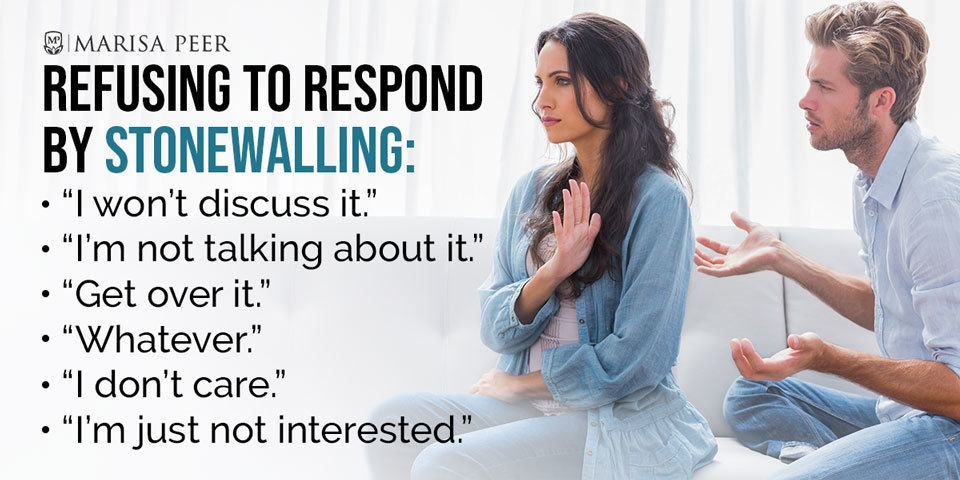
Stonewalling is failing to pay attention to your partner. We all need to be heard and one of our greatest fears is being rejected, so don’t reject someone by refusing to listen to them.
Make an effort to avoid dismissing the feelings and needs of others, even if what they’re saying is annoying or unimportant to you. It’s incredibly important to show others that you are taking on board what they’re saying to you.

2. Contempt, Scorn, Mockery, Superiority
Contempt and mockery are one of the most destructive elements in a relationship, and one of the hardest things to recover from, as they are so personal.
Mocking and being superior with body language is also very damaging, such as rolling your eyes, grimacing or sighing deeply when your partner or relative tells a joke. If we believe in the idea that our confidence is affected by the way others treat us, it’s just as important to work on the way we treat others.

Remember: One of the quickest ways to raise your own self esteem is to raise the self esteem of others.
3. Destructive Criticism
It’s better to criticize a person’s behaviour rather than the person themself. It helps to remember we are not our behaviour. A good person sometimes does bad things and a smart person does stupid things sometimes too.
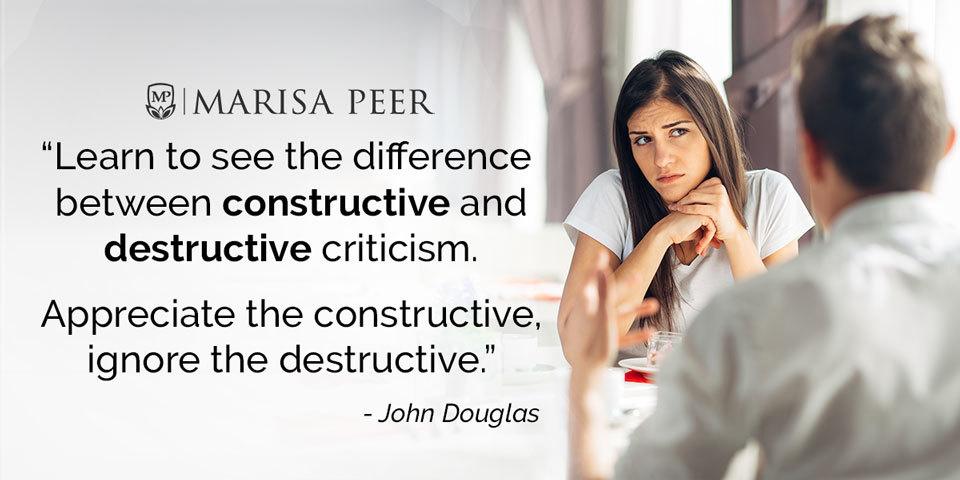
You have every right to criticize behaviour and to tell your partner how you feel when they are late, forgetful or unkind, but don’t call them names. Constructive criticism helps development and destructive criticism withers people’s spirit. If you want to learn how to make a relationship work, choose praise instead of criticism as it helps people grow and is a fantastic confidence booster.
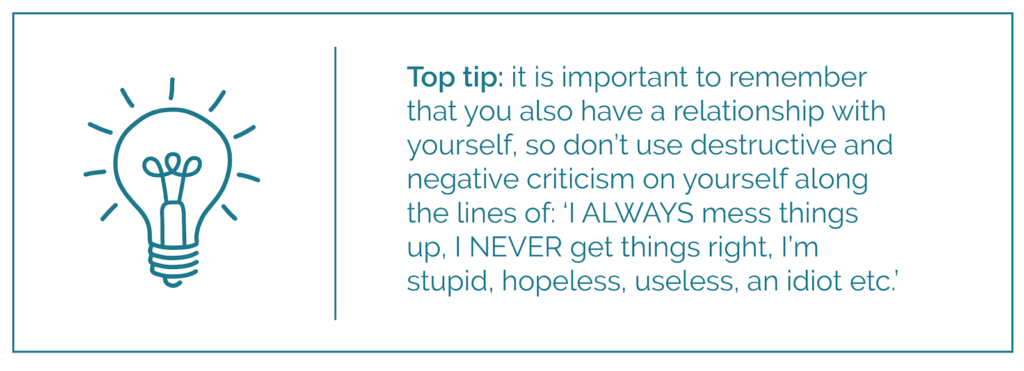
4. Hitting Below the Belt
This is when you use a partner or loved one’s weakness, illness, infertility, disability, lower income, status or their past to win an argument, to score points to make them feel inferior and you superior.

Hitting below the belt badly affects the confidence and the security of the person you are attacking. I have worked with so many families who have a mix of his children, her children and their children. They seem to have the greatest problems when they view the children as yours, mine and ours.
When learning how to make a relationship work, choose to see all the children as our children and all the relatives as our family or our relatives it makes them united instead of divided.
Remember: superior people praise, inferior people criticize others. People who are overly critical always have the most criticism for themselves and reflect it out to everyone else in order to elevate themselves and diminish others.
5. Defensiveness
If you want to learn how to make a relationship work, it is time to learn how not to be defensive and learn how to respond to your partner’s suggestions.
Defensiveness is when someone does not take responsibility for their actions. Responsibility literally means an ability to respond. We like people who say ‘I was wrong,’ because we recognise it takes courage and confidence, so they go up in our estimations.

If you can’t say ‘Yes I handled that really badly and I’m sorry,’ then you can’t expect anyone else to either. You will set a great example to the people you interact with when you can do this. People who will never accept they were wrong tend to be alone as they are very hard to live with.
Remember: no one can make you do or feel anything unless you let them. You can’t control what other people do and say, but you can control how you respond.
6. Past Wrongdoings
We can never undo the past and constantly referring to it is counterproductive, it can leave people feeling wronged years later. You can’t live in the moment if your arguments are history lessons about the past.
You can’t forgive the past and move on until you can let go of old hurts and resentments. It is essential to express hurt. One of the keys to having emotional wellbeing and inner peace is being able to express our hurt as close as possible to when the hurt occurred.

To not only learn how to make a relationship work but also have a healthy relationship, each partner must have the self confidence and awareness that they are allowed to express their hurt and to discuss the situation. But there absolutely must be a cut off point where the issue is dealt with and put away so the relationship can move on. Both partners must agree to this.
In order to be right, someone else always has to be wrong.
It is much more important to do the right thing than it is to be right. It’s more important to be kind than it is to be right.

Interestingly, studies have shown that when a suicider leaves a note they frequently mention being made to feel wrong and how hard it is to live with that. It’s a habit of behaviour we all need to avoid, even if we’ve been badly wronged by someone. Most of us hate to be made to feel wrong and you do not need to make your partner feel wrong in order to resolve an argument. Talk without going over the past, remember you’re having a discussion, not a history lesson.
If a partner has had an affair the other partner must feel that they are allowed to talk through it and get to answers, but not indefinitely. What I find works is to allow the other partner a time period, decided by both partners, when questions will be asked and answered, the issue will be dealt with and then a cut off point will come when the issue is put away.

7. Damaging Threats
Security is a human need and in relationships we need to feel secure. The minute you threaten to leave you devalue the relationship and have a negative effect on the other person’s confidence. The more you threaten to leave, the less secure your relationship and partner will be. If you or your partner are insecure, your relationship will be less happy, because you cannot be confident whilst insecure.

I have worked with so many clients deeply damaged as children because one parent would threaten to leave when things got tough. Sometimes they even went through a ritual of putting on their coat picking up a bag and walking off, leaving deeply traumatised children behind. The children had no idea it was an act designed to make the other partner shape up and it never works.
Many people who do leave relationships when they hit a difficult patch, just go through the same situation with their next partner, never really learning the invaluable skills of sticking with someone through a rocky patch and growing a really stable, secure, loving relationship. To know how to make. relationship work is to learn how to make a secure. The most secure relationships are where the partners agree they are staying together and working it out, not threatening to leave.
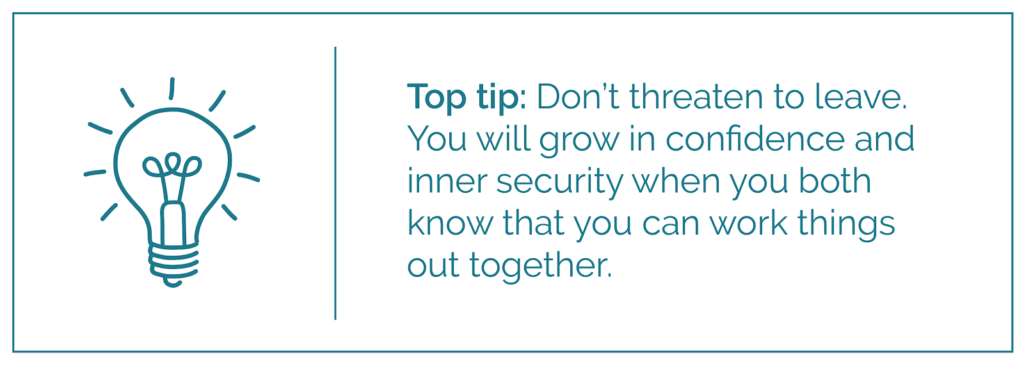
8. The Wrong Roles in Relationships
Many couples descend into a parent child relationship. One partner is the critical, bossy, nagging or controlling punishing parent, whilst the other is the child who is always wrong, always in trouble and always expected to improve, to come up to scratch and to stop disappointing the other. Knowing your partner is frequently disappointed in you, by you or with you, is demoralising.

If we start to see our partner as a parent, rather than our partner, we don’t feel the same physical attraction. Many couples lose their intimacy and desire when they have children. They can become so consumed with being good parents that they lose themselves.
According to the World Values Survey by the Pew Research Center, within a year of marriage…
Saying ‘I love you’ drops by 44%
Compliments and approval drop by 30%
Doing something nice for your partner drops by 28%
Shared physical affection drops by 39%
Unhappy couples focus on the negative rather than the positive. Don’t focus on what you don’t like about each other, because whatever you focus on you feel and get more of. Focus instead on what you love about each other and what you want more of.
To stay in love, regularly engage in:
- Holding hands
- Touching
- Deep listening
- Stroking
- Shared humour
- Warm voice
- Appreciation

9. Exaggerations and Generalisations
You may not be aware, but many of us escalate the negative when we talk about our loved one’s behaviour:
“You always… You never… You just don’t… You wont… You are useless at…..”

We can also be guilty of negative interpretations – of thinking ‘you did that deliberately to hurt me’. When you assume someone is deliberately acting against you, you are thinking the worst of them, which goes against their need to be accepted and not rejected.
I taught my daughter this when she was small. I would tell her she was a good girl but did naughty things, rather than call her naughty, bad or stupid. She would learn the lesson without it affecting her self image or self esteem, so it was constructive criticism not destructive criticism. When your children play up it’s much better to say “This isn’t you, it’s not like you to be like this, what is going on?” rather than say “why are you always…. naughty/acting out/being such a horrible bully to your sister,” etc.
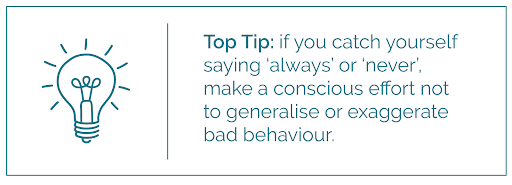
10. Relationship Rules
We all have our own set of rules and each person in a relationship brings their own rules, which the other partner may not understand or even know about. For instance, if you believe that when someone insults you, you must walk away and maintain your dignity, however, you marry someone who believes you don’t walk away in a fight, you are going to fight about your behaviour instead of the issue.

If your rule is to sleep on a problem and your partner’s is to stay up until it is resolved, you are going to have major conflict and even more to fight about. If your rule is to never shout and your partners is to get it off their chest, you will end up fighting about that instead of the issue you were initially fighting over. If your rule is to be openly affectionate and your partners is to only show affection in private, if your rule is to do everything together and your partners is to have time alone you are going to argue about that.
We do need relationship rules, but they must be jointly decided; you must work together on important rules. When we are newly in love we are very yielding, but this does not last. We go to a job that has clear rules and boundaries but come home to rules we don’t know, understand or agree to. You must work together.
Your soulmate may be nothing like you; to learn how to make a relationship work don’t try to make your partner like you, instead celebrate the difference. Liking and respecting the other person is more enduring than being in love.
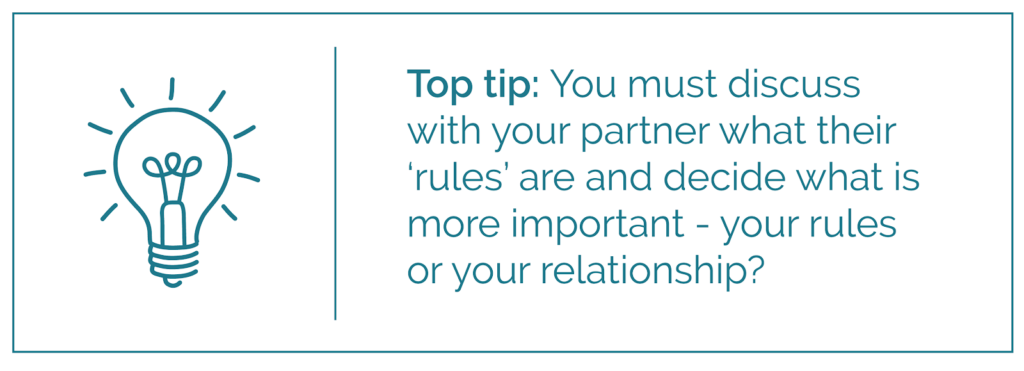
In summary, if we are not part of the solution, then we are part of the problem.
Instead of focusing on the problem, focus on how to fix it. Don’t feel you have to become a Saint and get this right all the time, I don’t and I teach this! However, even doing this half the time will improve your relationships and your confidence as well as the self esteem of the people you love.
Improve Yourself to Improve Your Relationships
Think of five new things you can do to improve your relationship. This immediately moves you forward. Give what you most want to get back and don’t wait for your partner to do the same before you begin. If you give your partner what you know they need the most, it makes it easier for them to do the same for you. A successful relationship involves each partner giving 100%.
Work on your relationship with yourself. Many people put their partner on a pedestal and place unrealistic expectations of perfection on them. Of course, no-one is perfect and when we catch sight of our partner’s flaws it can lead to frustration and disappointment. This, in turn, can lead us to make any one of the common mistakes above. When you have a good relationship with yourself, you will be more accepting of their flaws.
So, I invite you to dedicate some time to improving your relationship with yourself. Practice self-praise and over time that will help you better praise your partner too. Learning to love yourself is not always easy so I would like to support you in this quest.
Introducing… The 21-Day Relationship Challenge
A successful relationship begins with you. It begins when you understand your thought patterns, your needs, and your own wants, before anything else. You need to invest time in self-reflection and understanding, if you are to begin to make a relationship work.
That’s why Marisa Peer designed and built her 21-Day Relationship Challenge. Made for all of those struggling to form happy, authentic connections with their partners, in this challenge you will learn how to develop your self-confidence and build your self-worth, which will enable you to accept and manage your romantic connection with your partner. You will undergo a transformative journey that will help you break down any misbeliefs you currently hold that may be affecting your relationship, as well as how to cultivate your connection to become rewarding, fulfilling, and satisfying.
Join the challenge by clicking the banner below and securing your spot today.




